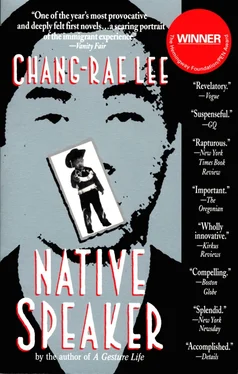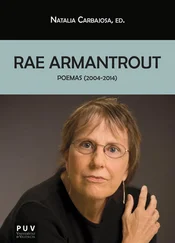“Go on, Pete,” Kalantzakos said over his shoulder. “Do the drill for surveilling a woman. You stalk them, I know.”
“You’ve got to be careful,” Pete answered. “Women, especially in urban areas, are naturally defensive. They’re sensitive to predation, men bearing gifts. They believe at all times that somebody is spooking them, though this mind-set is also useful to the spook. You present yourself as a shield. The key is to walk with them, on their side, as the protector. You follow by leading.”
“Pete’s now a Muslim,” spoke up Dennis Hoagland, our director. “This morning I caught him praying in the john. Moaning to some higher power. I think he was pointed straight at your desk, Grace.”
Grace made a flourish with her hand, queenlike. She was working through a stack of papers and photographs. I knew she was hearing — and remembering — everything that was being said. Weeks later she might comment on the conversation, whether she had participated or not. Like the rest of us, over the years she had developed extremely keen powers of observation and recollection. I often wondered if she even liked us.
“I was puking, Dennis,” Pete replied. “I thought you were, too.”
Pete was a drinker, not too bad yet but maybe on the start to something tragic.
Dennis Hoagland I didn’t know about. His colon was probably spastic. He was dyspeptic, fitful, an alimentary type. He often reeked of Maalox. He looked fine to the eye, ruddy, pumping, pink, but you sensed he was somehow on the brink of death.
Pete turned to Grace. “For the record,” he said, “I save my prayers for after work. That’s when I’m feeling contrite. Why not work on our guilt and shame together? What do you say, sweetheart?”
Grace tucked the pencil behind her ear.
She said, deadpan, “I don’t know what you mean, Pete. I like the business. It’s a good one. I make good money, meet nice people.”
“You’re murderous, Grace.”
“Why, thank you.”
We casually spoke of ourselves as business people. Domestic travelers. We went wherever there was a need. The urgency of that need, like much of everything else, was determined by some calculus of power and money. Political force, the fluid motion of capital. Influence on your fellow man. These basics drove our livelihood.
In a phrase, we were spies. But the sound of that is all wrong. We weren’t the kind of figures you naturally thought of or maybe even hoped existed. Hoagland, who had recruited me, told me once that our job was simply to even things out, clear the market as it were, act as secret arbitrageurs. I pretended to believe him.
We pledged allegiance to no government. We weren’t ourselves political creatures. We weren’t patriots. Even less, heroes. We systematically overassessed risk, made it a bad word. Guns spooked us. Jack kept a pistol in his desk but it didn’t work. We knew nothing of weaponry, torture, psychological warfare, extortion, electronics, supercomputers, explosives. Never anything like that.
Our office motto: Cowardice is what you make of it .
We chose instead to deal in people. Each of us engaged our own kind, more or less. Foreign workers, immigrants, first-generationals, neo-Americans. I worked with Koreans, Pete with Japanese. We split up the rest, the Chinese, Laotians, Singaporans, Filipinos, the whole transplanted Pacific Rim. Grace handled Eastern Europe; Jack, the Mediterranean and Middle East; the two Jimmys, Baptiste and Perez, Central America and Africa. There were a few others, freelancers who’d step in when we needed them. Dennis Hoagland had established the firm in the mid-seventies, when another influx of newcomers was arriving. He said he knew a growth industry when he saw one; and there were no other firms with any ethnic coverage to speak of. The same reason the CIA had such shoddy intelligence in nonwhite countries. Hoagland oversaw the operation from our modest offices in Westchester County. He was the cultural dispatcher.
Our clients were multinational corporations, bureaus of foreign governments, individuals of resource and connection. We provided them with information about people working against their vested interests. We generated background studies, psychological assessments, daily chronologies, myriad facts and extrapolations. These in extensive reports.
Typically the subject was a well-to-do immigrant supporting some potential insurgency in his old land, or else funding a fledgling trade union or radical student organization. Sometimes he was simply an agitator. Maybe a writer of conscience. An expatriate artist.
We worked by contriving intricate and open-ended emotional conspiracies. We became acquaintances, casual friends. Sometimes lovers. We were social drinkers. Embracers of children. Doubles partners. We threw rice at weddings, we laid wreaths at funerals. We ate sweet pastries in the basements of churches.
Then we wrote the tract of their lives, remote, unauthorized biographies.
I the most prodigal and mundane of historians.
The intrigue. Always the intrigue. That certain sequence of unrelated events. Then bang. Dennis Hoagland said that in our time there were only two or three worth talking about, for complexity, fascination, depth of involvement: JFK, Watergate, the attempt on the Pope. Modern classics. He acknowledged outright that it was a personal matter, this choosing of one’s mysteries. He said you could tell about a person not from what he believed but by what worried him. Hoagland necessarily considered everyone a world-political creature, with a heightened persona, a neurotic cultural manner.
Of course, there were whole legions of adherents to his view. There were still, out there, handfuls of committed Pearl Harbor theorists. Devotees of the Hindenburg disaster. The UFO-Pentagon conspiracists. Amelia Earhart gurus.
Recently I received in the mail a handwritten pamphlet outlining the spread of HIV by the FBI. They were releasing infected mosquitoes by the billions.
This is the worry, alive and well everywhere.
It’s people like Hoagland who call you up at odd hours of the night to tell you something you absolutely need to know, practicing on you the subtlest form of sleep deprivation. Half-conscious training. Two in the morning, three, he would ring. I’d get angry with him and he would apologize deeply but two nights later he’d start in again.
He did this after Lelia’s return from the islands. I was spending less time up at the office in Purchase, doing whatever work I could from the apartment, mostly because I wanted to live there as much as I could, make it a home somehow, thinking this might draw Lelia back sooner than she was planning. But then Hoagland was complaining. Everyone else was out of the office and he had no one to spook or harass.
“So what are we putting you on, Harry?” Hoagland liked to call me Harry. It made him feel like an old-timer, venerable.
“John Kwang,” I said, seeing the time on the clock. Four-fifteen.
“Right,” he answered. He knew everything, certainly, but he just wanted me to do the drill. He said, “John Kwang. The rising star of the east. Prince of Northern Boulevard. What goes on?”
“You tell me,” I said.
“We’ll be placing you soon,” he replied, typically confident. “I have a line on a position in his staff. Some public relations work. How do you like that?”
“Fine,” I answered. “Jack asked me yesterday. What name will I use?”
“Whatever you like, this time. Bruce Lee, for all I care.”
“Bigot.”
“To hell with that. I know Enter the Dragon by the frame. I’ve had these dreams. I reach into people’s hearts. I have emow-tional content . Ask me anything.”
I knew he could recite the whole movie.
Читать дальше












